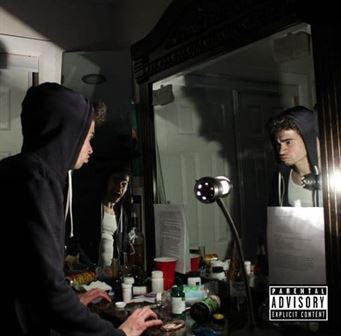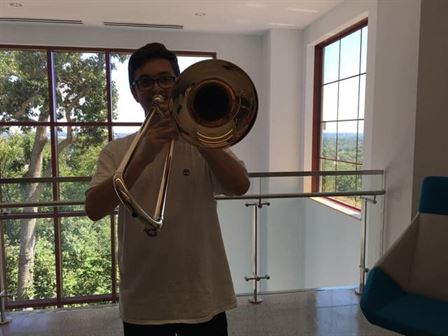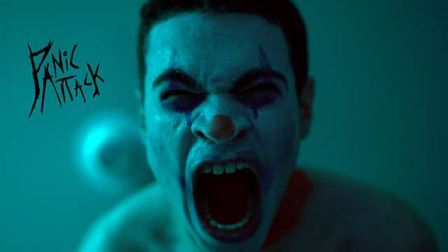This past July, Chester Bennington, the 41 year old Linkin Park frontman, ended his life in his California home. Bennington made no secret of past struggles with drug addiction and continued battle with depression and oftentimes, his lyrics reflected this. In the band’s 2003 song “Heavy” lines include “I don’t like my mind right now” and “if I just let go I’d be set free” while “Easier to Run” features the line “Sometimes I remember the darkness of my past bringing back these memories I wish I didn’t have. Sometimes I think of letting go and never looking back and never moving forward so there’d never be a past”.
Musicians throughout history have been dealing with mental illnesses. Bipolar disorder traces as far back as Beethoven, and continues to affect modern musicians like Demi Lovato and Sinead O’Connor. Conditions like ADHD are part of Maroon 5’s Adam Levine’s life, while drug and substance abuse has plagued musicians, the likes of Jim Morrison and Amy Winehouse. These artists are able to transform the anger, pain, and raw emotion of their conditions and convert it into music that not only gives validity to their feelings, but also creates a universal sense of understanding and acceptance. Even if someone listening to Nirvana’s “Come as You Are” or Linkin Park’s “Hybrid Theory” doesn’t know about the specific conditions affecting them, listeners can still feel the raw emotional power of the artists.
Many suffering with mental illness feel helpless and alone, which, unfortunately, often leads down a self destructive path. Musicians who are able to write about their struggles with depression and other mental illnesses are able to create a sense of community for those who feel utterly alone. People listening to the likes of Brand New, Nirvana, Amy Winehouse, or Linkin Park are able to feel connected to something bigger than themselves. They are a part of something. The music not only makes them feel less foreign and alone, but seems to validate their emotions. While maybe they’re not great feelings to have, the music allows listeners to acknowledge that the emotions are happening. And acknowledgement is the first step towards recovery.
Saeed Yasin, a sophomore with a major in biology and an aspiring psychiatrist, also plays the bass trombone in his spare time. Yasin has played the instrument for 8-9 years and was first introduced to the trombone in middle school. It was not until his freshman year at Montclair State where he learned how to play it professionally.
When asked about how music has helped him heal with his hardships, Saeed explains how his raw emotions are reflected within his music:
“I definitely have gone through some depressing, stressful situations. My parents have split up at a young age and I learned how to cope with it through music. I found it so much easier to express something without words, like playing the piano or trombone in my room. I was making up sounds as I go along. As a singer connects with the words, a musician has to connect with the tone and pitch of what he/she is playing.
Saeed also plans to continue playing the trombone post-graduation, as it is one of his favorite hobbies.
Michael Montesclaros Realista, guitarist and MSU junior currently majoring in musical therapy, is in a heavy metal band called “Psilocybe”. Realista enlisted in the Marine Corps in 2011 and has been traveling the world since. Psilocybe has been recording material for the past 3 years, playing at almost 40 shows in the Tri-State area. The band is currently recording another EP with fellow Jersey City band “Swamp.”

The picture with the band Psilocybe. From left to right, Michael Realista, Ishi Anais, Marc Pappalardo, and Marcus Acosta playing in Philadelphia –Photo courtesy of Xinos Photography.
When asked about the band’s thoughts about how music copes with mental disorders, they have collectively said:
“Music, like any other art form or creative medium, can be one of the most powerful tools for expressing emotions and repressed mental states. There have been many times throughout all of our lives, and during the lifetime of this band, where we’ve dealt with extremely dark times. 2016 in particular was a rough year for all of us, but it was also the year that the band became very active and where we were the most creative and focused. There is definitely a correlation between the type of music we create and the mental state of the band members. Most of the songs we wrote during that dark time are going to be released as a concept album called “Cosmic Perversion”, and it is by far the most emotional and experimental batch of music we’ve created. It definitely has a different vibe altogether from our first release, “Rhythmic Slaughter” and the other release we are working on, and it serves as a testament to that era in our lives. Oftentimes, the healthiest way to deal with mental disorders is to talk about it with someone or find ways of expressing the frustration and the pain, and our music has definitely helped us all in that regard.”
Another MSU student that spoke about music’s connection with mental disorders is David Acosta, a 2014 alumna with a BA in theatre studies. Acosta is a hip-hop rapper by the name of “Murdock”. Acosta was also a huge Linkin Park fan and says the music helped him get through the early stages of depression. Their music reassured him that he was not alone.
Acosta released his first album last December about dealing with depression and anxiety. Acosta hopes to spread a message about feeling sadness and has received positive feedback since. Acosta currently deals with depression, anxiety, Tourette’s syndrome, ADHD, and OCD.
“When I felt the lowest of lows, that was when I created my best music and was able to express my emotions,” stated David “Murdock” Acosta.

Murdock’s album cover for AAAH- Agoraphobic.Alcoholic. Asshole –Photo courtesy of Alexander Gurevich.




